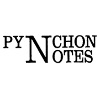Abstract
Posed to the protagonist Oedipa, this question invites the reader to consider what relevance the word "quest" has in a text which is a deliberate parody, where an obsession for reference (accurate or deliberately misleading) and the proliferation of parasitic abbreviations on the one hand, the repetitiveness of the narrative as well as the uncertain status of the speaker (s) on the other, and, last of all, rather cryptic symbolism, tend to obscure the finality of narrative. The grids traditionally used in stories as reference points--morphological, narrative, symbolic structures--are there, of course, but they exist simply as moving lines that crisscross and blend into one another. The interpretation of the reality described is continually jeopardized by the ambiguity concerning the characters' and the readers' perception. The linking up of intuited and logically understood experience which we find in quest novels is here constantly deferred.
How to Cite:
Brugiere, M., (1982) “Quest Avatars in Thomas Pynchon's The Crying of Lot 49”, Pynchon Notes 9, 5-16. doi: https://doi.org/10.16995/pn.445
Downloads:
Download PDF

